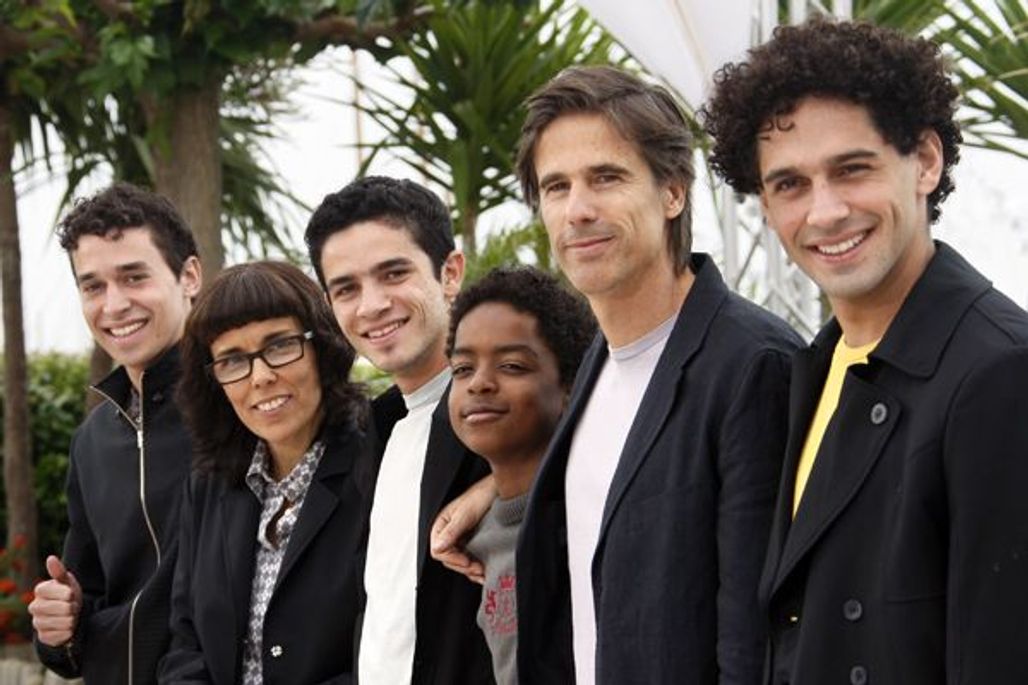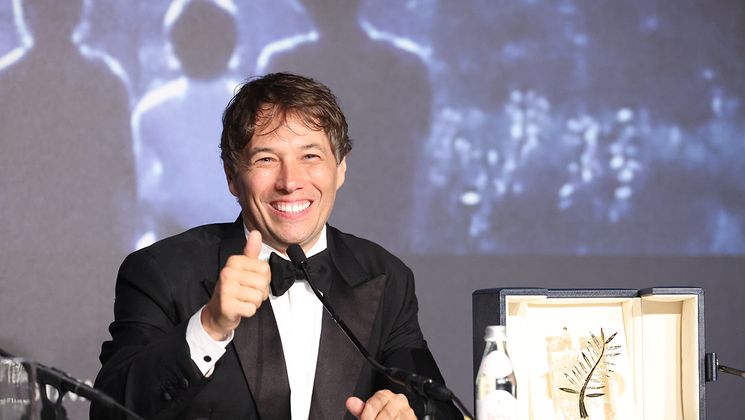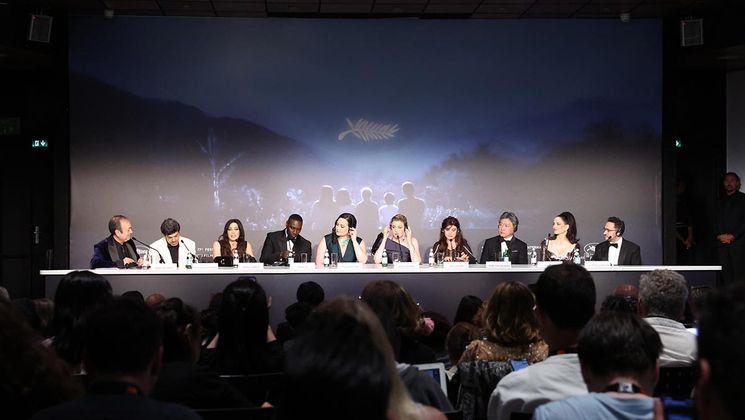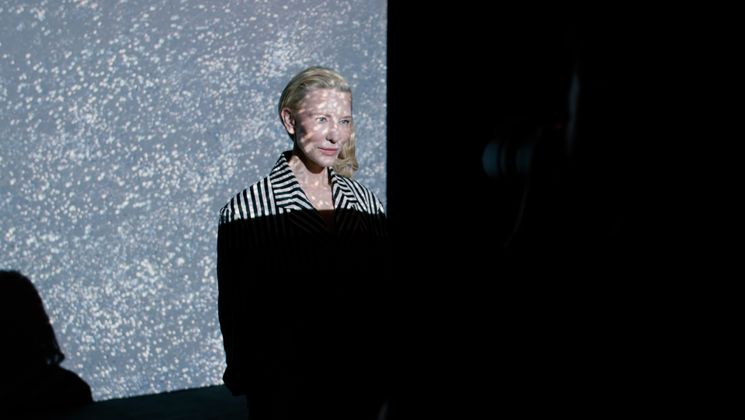
Press Conference: “Linha De Passe”

Brazilian directors Walter Salles and Daniela Thomas, presenting Linha De Passe in Competition, fielded questions from the press today, along with actors João Baldasserini, Kaique de Jesus Santos, Vinícius de Oliveira and José Geraldo Rodrigues. Selected highlights follow.
Walter Salles on the inspirations for this film:
“Kaique’s character was inspired by a true story that happened in Brazil about four or five years ago. The film is actually based on several different real people’s stories, that we integrated into one single story. Since we were making a film about youth, Daniela and I, the idea, after making one called Foreign Land, was to draw on Brazilian reality, which is very rich, on the one hand, and on the other hand, since it’s a story about people reinventing themselves, we wanted to work mainly with actors who had never shot a film before. 99% of the people you see in the film were making their debut. It was the same for the technical crew.”
On working as a duo of directors:
Daniela Thomas:
“Walter is a very generous man and he invited me to share with him this incredible experience. You all know he needs no help in what he does, but he’s crazy enough to invite me to share with him. It’s not very defined and I think that the films we do together have a big difference from the ones that he does alone. Because we are two, we become 10, 12, 20… The hierarchy is not so strong, not so defined, so I think the film becomes a team film. I think people feel very comfortable, the actors, the technicians. We talk all the time behind the camera; everything is up for grabs. We have discussions about everything.”
Walter Salles :
“There isn’t really a division of labor. We’re carried away by the intuition of the moment. We discuss things moment by moment, and then one of us has an intuition that the other follows. We have to trust each other… Making a film as a duo means that you’re always putting yourself in danger, because your judgment is continually being challenged, and that’s what interests me – the possibility of continual destabilization.”
Daniela Thomas on Sao Paulo as the setting:
“Sao Paulo was born almost together with the basic storyline of the film as the 6th character. It’s a huge city, it has no escape like in Rio. Rio is an incredibly big and dramatic city, but you have the sea, the landscape, some sense of redemption in the city. Sao Paulo has nothing: it’s streets and buildings, underpasses, overpasses, and growth… The first thing we did was to go into Sao Paulo. I’ve been living there for twenty years, but still I didn’t know any of these places that are in the film. Most of the locations in the film are the ones we chose to start writing about.”
Daniela Thomas on the script:
“We saw this script not only as an individual dramatic structure, but as a transitivity between the characters. Not because they meet, but because their stories – we would say in Portuguese, they “water” like the river, they water into each other – they dive into each other not by meeting but by proximity. The script is part of a braid of stories that cross and cross.”
Walter Salles on the theme of the absence of a father figure:
“Two weeks ago, in Brazil, they published statistics saying that there are about 25-28% of the families that are fatherless. Statistically, that’s a very high figure, and this chronic absence of the father in the Brazilian family is a trend that is growing. As a result, you see families being raised by a “Mother Courage,” as it were, who acts as both father and mother to the children, fighting for the family’s survival. This mother figure represents a moral resistance which is an important theme in the film.”


